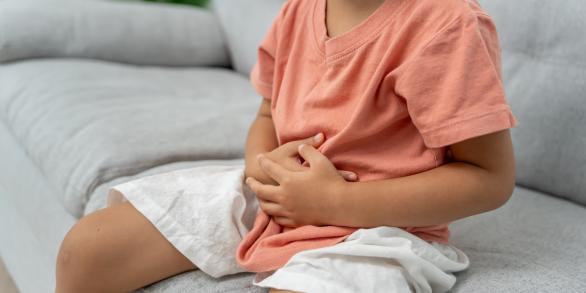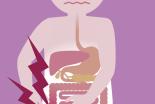We're hiring ! Join us and make a difference in our hospitals
Acute Appendicitis

Acute Appendicitis in Children
Acute appendicitis is one of the most common surgical emergencies in children. It occurs when the appendix – a small pouch connected to the beginning of the large intestine – becomes inflamed due to a blockage. This blockage can be caused by hard stool, a foreign object (such as a fruit stone), a viral infection, or, in rare cases, a small tumour.
Appendicitis is most common in children over the age of six, but it can also appear in younger children, sometimes as early as two or three years old. In young children, symptoms can be misleading and resemble a stomach flu: fever, vomiting, diarrhoea...
A careful medical examination, often supported by a blood test and an ultrasound scan, is therefore essential.
The condition can vary in severity:
- Simple appendicitis, when the inflammation remains localised;
- Complicated appendicitis, when it leads to an abscess or peritonitis (infection of the abdominal cavity).
Prompt diagnosis and treatment are crucial to avoid complications.
Hospital Care and Treatment
From emergency to recovery
When a child experiences persistent abdominal pain (often in the lower right side), along with fever, nausea, or loss of appetite, it is important to seek medical attention quickly.
At the emergency department, the doctor examines your child, asks a few questions, and may request blood tests and an ultrasound scan. If the diagnosis is confirmed, the paediatric surgeon will be called.
Treatment involves removing the appendix (appendicectomy) under general anaesthesia:
- Most often performed by laparoscopy, using small incisions and a miniature camera;
- Occasionally by open surgery (laparotomy) in more complex cases.
The operation usually lasts about one hour. After surgery, your child wakes up in the recovery room, where the nurse carefully monitors pain and vital signs before returning to the ward.
The length of hospital stay depends on the severity of the appendicitis:
- Around two days for a simple appendicitis;
- A few extra days for a complicated case requiring antibiotics and, sometimes, a drain.
Complications such as abscesses or wound infections are rare and are effectively treated under medical supervision.
Advice for Parents
Supporting your child’s recovery at home
Before leaving the hospital, you will receive all the necessary documents: school certificates, insurance forms, the medical report, prescriptions, and a follow-up appointment.
Once home, please follow these simple recommendations:
- Your child may eat normally;
- Avoid sports or physical activities for 2 to 3 weeks;
- Showers are allowed, but no baths until the wound has fully healed;
- Give pain relief only as prescribed;
- Check the wound regularly — contact your doctor if you notice redness, discharge, or fever.
With prompt treatment and proper follow-up, most children make a full recovery.
The paediatric surgery team remains available to answer your questions and guide you through every stage of your child’s care.

